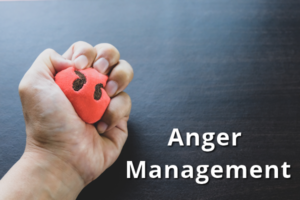 Anger Management
Anger Management
Anger is an intense emotion that prompts people to take action when they feel frustrated, rejected or criticized. It can occur when someone else violates a standard of behaviour or code of conduct. When it is the result of thoughts that build up, it can occur more gradually. When it is the result of perceived danger, it is more like a reflex and can appear quickly. It is an emotion that can help us to take positive action (like solving a problem or asserting our rights). It can also have negative consequences when it leads to aggressive behaviour (in which case our safety or interpersonal relationships are jeopardized).
Anger is a problem when a person reacts quickly and intensely to provocations with angry comments, open hostility, or even physical violence. The person feels moved to take some kind of action, and eating may be one way of taking this action. If you are angry at someone who wants you to lose weight, you may eat in front of that person as a way of acting out.
Other people suppress their anger. This in itself can cause a problem since it precludes taking positive action when a more assertive, problem-solving response is called for. When anger is the underlying problem, the person in therapy can learn a variety of more positive techniques to deal with their angry impulses or suppression of anger. They can understand the triggers, learn to change their thoughts, and replace the old behavior with more positive action.
How Anger Affects our Body
When anger occurs, the body goes instantly into a series of mind-body reactions involving hormones, the nervous system and the muscles. This involves a release of adrenaline that results in shortness of breath, skin flushing, muscle rigidity and tightening in the jaw, stomach, shoulders and hands. Our thoughts can become fragmented and our eyes may dart from object to object. We become agitated and may even tremble. Our first impulse may be to take action – and this could turn out to be destructive.
